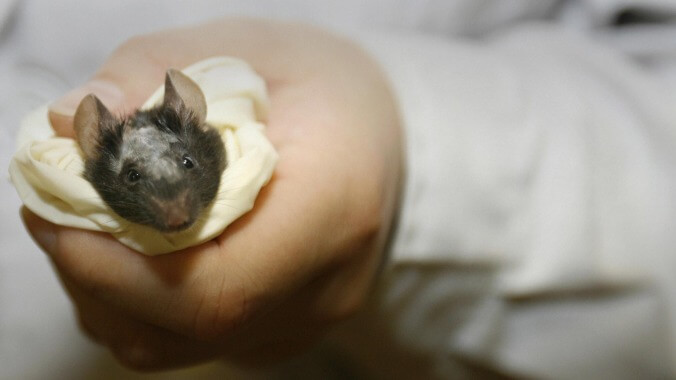Even space radiation cannot neutralize the virile strength of freeze-dried mouse semen
This also implies we could easily colonize Mars, but no one tell that to Elon Musk.

Mighty Mouse himself. Photo: Peter Parks/AFP
It only takes a cursory look around us to remind everyone that humanity really needs to work faster at shopping around for its next planet to recklessly deplete of all natural beauty and resources establish as a new home. Of course, that’s easier said than done, and a lot of work is still required to ensure that everyone’s still in one piece after however long we spend traveling across the vast, uncaring, deadly void of space… but apparently, there’s one human biological factor that we don’t need to worry about any longer.

 Keep scrolling for more great stories from The A.V. Club.
Keep scrolling for more great stories from The A.V. Club.